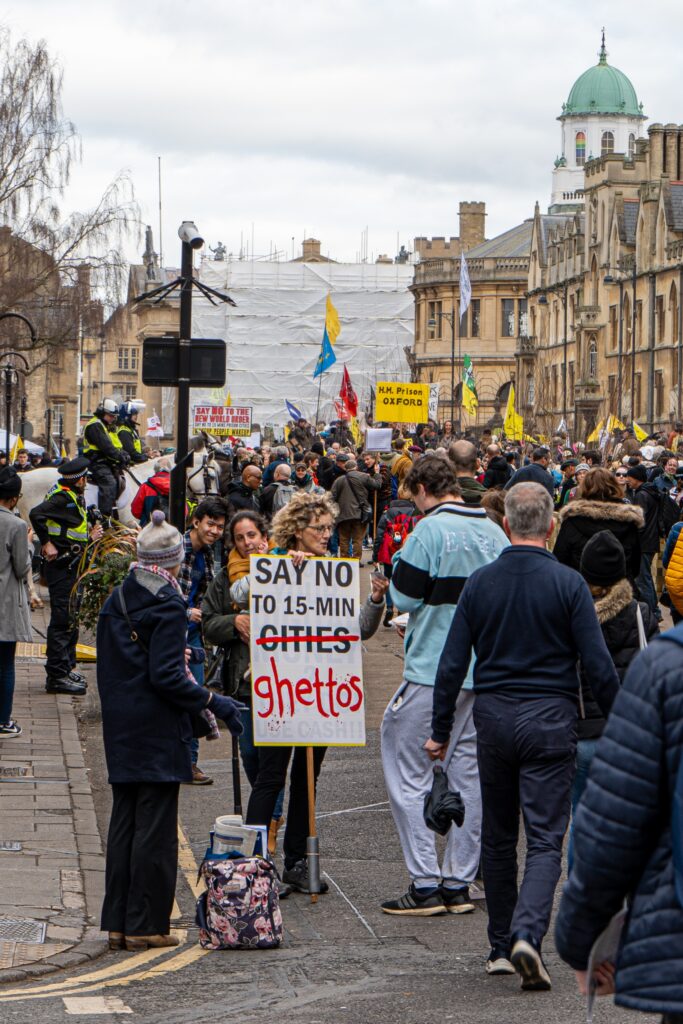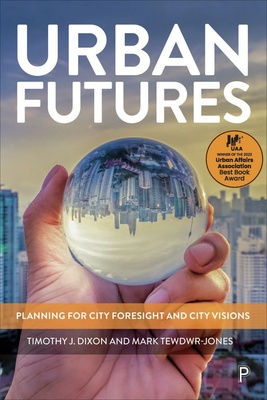Timothy J. Dixon
Emeritus Professor at the University of Reading and Visiting Fellow/Research Associate, Kellogg College/GCHU
Twitter: @UniRdg_SustBE
Recent political controversy over net zero policies at both national and local level is in danger of drowning out any consensus as to how we should tackle the climate crisis in our cities. The rise of populist right wing political viewpoints in many countries is creating a ‘wedge’ in political agreement as to how we should tackle climate change, and indeed, if a net zero target is even a feasible ambition.
In the UK, for example, a recent foreword by transport minister Mark Harper in the Department of Transport’s ‘Plan for Drivers’, suggests: “We will explore options to stop local councils using so-called “15-minute cities”, such as in Oxford, to police people’s lives”. Although the concept of 15-minute cities has created controversy, it is certainly not designed to ‘police people’s lives’, and Carlos Moreno, the original creator of the 15-minute cities concept, has been forced to clarify its meaning as a result of inaccurate statements and obfuscation such as this by his opponents.
What can only be described as ‘anti-net zero populism’ has also led some to challenge the basis of net zero targets nationally and locally in our towns and cities. However, the concept of net zero remains an important target because the Intergovernmental Panel on Climate Change (IPCC) stated in 2018 that the world needs to reach net zero by around 2050, if it is to meet the Paris Agreement target of limiting global warming to 1.5°C. Recent reports suggest, however, that we need to act even faster to achieve net zero if serious global warming is to be avoided.
How can we resolve this kind of conflict, which is often made worse by online conspiracy theories and counterculture? In a recent GCHU seminar we saw how important it is not only to recognise the differing viewpoints that exist about our urban future (which may have multiple scenarios or outcomes), but also the need to anchor any long term city vision in a co-created environment with diverse views drawn from four main groups: people and civil society, business, local government and academia.
That’s why it is so important to create long term visions (or shared and desirable futures) within our towns and cities that transcend short term political differences and bring consensus, whether that’s around net zero, broader climate change targets, or how we should design and retrofit our cities for the future. The many Climate Emergency Strategies and city visions that already exist, such as the Oxford 2050 and Reading 2050 visions, are examples of this kind of thinking.
Ultimately, it’s very important to think about how all forms of deliberative democracy can bring diverse views and hidden voices together in our towns and cities and achieve agreement through fair and balanced dialogue and debate. We have seen this with the work of GCHU in the Street Voice project, and my new book on ‘Urban Futures’ with Mark Tewdwr-Jones of UCL explores how, at a larger scale, ‘city visioning’ can create shared and desirable futures, often based on foresight and futures thinking.
In the end this is about political choice and, whatever your views on net zero, climate change and 15-minute cities, it’s surely the case that politicians have a duty and responsibility to be honest and accurate in their statements because people, and their reactions to these issues, matter. After all as Shakespeare wrote in Coriolanus: ‘what is the city but the people?’


